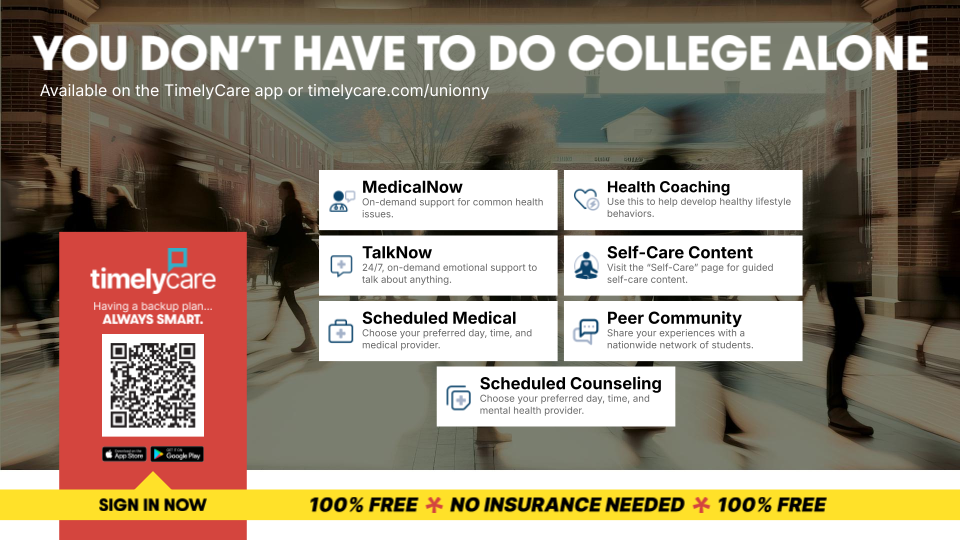The Counseling Center supports the mission of Union College by encouraging the intellectual, emotional, and social development of students by providing comprehensive mental health services focused on personal growth and decision making, promoting healthy lifestyle choices, relationship-building, and problem resolution. We are committed to supporting diversity, social justice, and treating all members of the Union community with respect, recognizing a special duty to those of underrepresented and historically marginalized groups. Here at the Counseling Center, we embrace a definition of diversity that includes ethnic/racial identity, sexual orientation, age, sex, religious beliefs, socioeconomic status, gender identity, nationality, body shape/size and differences in physical abilities. We value respect by treating everyone equally, valuing all contributions, cultivating autonomous decision making, and celebrating diversity. The Counseling Center is located on the second floor of the Wicker Wellness Center.
The Counseling Center offers both in-person and telehealth therapy at this time. If you are feeling ill or have been potentially exposed to covid-19, please let us know so that you can have a virtual appointment. To schedule a consultation appointment, please call (518) 388-6161 to speak with an administrative assistant. Consultation hours are currently Monday-Friday from 1-4 PM. Regular therapy sessions are available Monday-Friday between 9-5 PM. Masks are no longer required at Wicker Wellness Center, however, if you are feeling ill, we ask that you do wear one.
The Eppler-Wolff Counseling Center extends its support to ALL our students who are being impacted by the current violence in Israel and Gaza. We recognize the understandable grief, fear and anger that many of our students may be experiencing right now, especially our students who are Israeli, Palestinian, or have ties to or loved ones in those regions. We encourage all of you to take care of and be compassionate with yourselves and each other.

